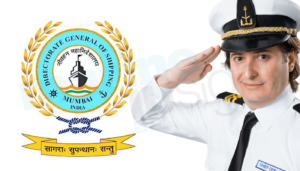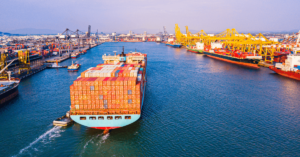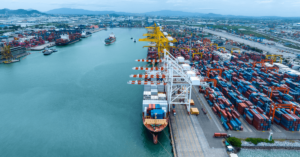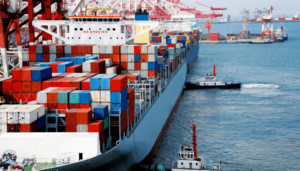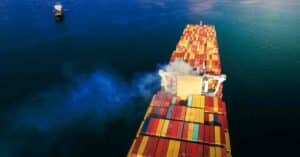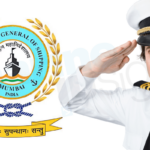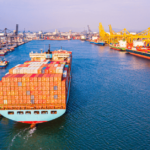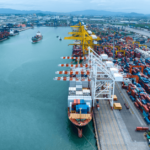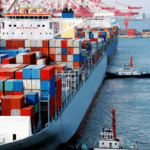International Maritime Lawyers – Career Prospects and Qualifications Required
International Maritime Lawyer
An International Maritime Lawyer is a professional eligible to practice law in a given jurisdiction or country with the speciality of legally dealing with maritime matters.
This specialisation may be attained directly through offering legal services on maritime matters or through advanced education in the subject, such as by means of obtaining a Master of Laws (LL.M.) in International Maritime Law, or by both. To build further subject-matter expertise, one may even pursue a Doctorate of Philosophy in any aspect of International Maritime Law.
International Maritime Law
The niche subject of international maritime law is a whole world in itself offering diverse professional avenues to contribute and cater to international and national needs. It serves to create an environment for smooth trade flow alongside global frontiers through the most cost-effective mode of transport—shipping.

Subjects of International Maritime Law
Taking up a legal profession in this speciality of international maritime law requires one to be adept with everything maritime, that is, matters related to the marine areas, i.e., the seas and oceans, such as natural resources, including fisheries, marine life and oil and natural gas found therein, as well as ships and people serving and travelling on the ships.
In doing so, a maritime legal professional may interface with the study of international law and national law because the marine areas, which harbour critical resources and are used for transporting around 90% of the global trade, lie within and beyond national jurisdiction.
Also, a maritime lawyer will interact with private and public facets of law because the determination of what is “national” is affected by the public and private interests in the maritime sector.
The public aspect is commonly referred to as the law of the sea, while the private aspect is the shipping law.
International Environmental Law.
The protection and preservation of the marine environment are today at the centre of international concern since it impacts the future of the planet as a whole. This is where a maritime lawyer may apply international environmental law, including on climate change.
This subject in itself expands from evading the threat of global warming resulting directly from the emissions from the shipping sector to the preservation of marine species from other menaces such as Illegal, Unreported and Unregulated (“IUU”) fishing, which impact global food security and the marine ecosystem.
International Human Rights Law and Maritime Labour Law
Also, seafarers and fishing personnel are often victims of inhumane or unsanitary or brutal work conditions. Therefore, this brings into a dimension that the study of human rights is a pertinent subject in the maritime sector.
The COVID-19 pandemic evidenced the vulnerable position of the human element in the shipping industry, where the seafarers being frontline warriors/key workers transporting essentials to meet national and international demands faced major hurdles in disembarking from ships due to stringent lockdown regulations in each country. Hence, the maritime sector also summons the understanding of maritime labour law.
Maritime Security Law and Maritime Safety Law
Besides, maritime lawyers may interact with security issues or refugee or migrant crises, for instance with the Rohingya Muslims fleeing persecution in Myanmar via fishing trawlers to seek asylum or ships with stowaways or illegal substances or materials on board ships, etc. Further, maritime safety matters may be subjects dealt with by maritime lawyers.
Shipping law
Ship Finance
External finance is sine qua non in the shipping sector since the building, acquisition, operation management and disposal of a ship are capital intensive matters. Hence, a maritime lawyer may professionally contribute to matters impacting ship finance as well.
Ship Registration and allied matters
Also, a ship—much like humans with citizenship—is assigned a nationality of the country it is registered with and whose flag it is entitled to fly. Ship registration serves to impose the rules and regulations of the country whose flag that ship flies, while also extending such country’s protection. Characteristically, ship registration can be closed to only nationals or open with no restrictions or hybrid, and the consequences of each variety affect stakeholder rights and liabilities. Here, a maritime lawyer’s role extends to contributing toward ship registration and allied matters that arise therefrom. There are other matters that are also dealt with by a maritime lawyer, such as companies or organisations engaged in shipbuilding, sale, purchase and acquisition of ships and their operation and management.
International Trade Law
Often shipping operations are not carried out by shipowners themselves but by charterers. Also, ships may only be one of the many modes of transport for a consignment to reach a customer. These equations display professional opportunities for maritime lawyers in assisting ship charterers, freight forwarders, multimodal transport operators, etc. Also, in the carriage of goods by sea, the rights and liabilities of stakeholders are complex.
This is because the responsibility and possession of goods—which may characteristically be perishable, non-perishable, hazardous, noxious or flammable—needs to be ascertained through shipping documents such as the bill of lading, charter parties, multimodal transport documents, international conventions, etc. In this direction, a maritime lawyer will also interact with international commercial terms adopted by the International Chamber of Commerce, which harmonize international trade by providing the costs, risks and liabilities of the stakeholders.
Carriage of People by Sea
Besides, the carriage of people by sea is a much more delicate affair, especially in terms of the liability regime, that may require the engagement of a maritime lawyer, particularly in the hospitality or cruise industry at sea.
Law of Salvage, Towage and Pilotage
Further, a maritime lawyer contributes to ascertain the rights and liabilities of a ship/cargo owner or master or agent of a ship where maritime emergencies and accidents occur and even in determining the incentives for the saving of an endangered ship under the law of salvage. While salvage is a recourse during danger, the law of towage is another sub-speciality of a maritime lawyer to aid in contractual towing of a vessel by another, irrespective of danger. Further, a maritime lawyer utilises the law of pilotage to assist a ship’s entry into specified areas by a person, i.e., a pilot, with specialised knowledge of the local condition and navigational hazards in that area.
Ship Recycling
When ships are damaged beyond repair or near the end of their lives, they are recycled for a price. However, since ships may have carried reactive or flammable or dangerous or other hazardous substances on board, their recycling needs to be safe and ecologically sound—a matter which is now codified in the Hong Kong International Convention for the Safe and Environmentally Sound Recycling of Ships, 2009. Hence, professional opportunities for maritime lawyers in the ship recycling industry are huge and they also require the application of relevant national labour and environmental laws.
Ship Arrests
Importantly, where shipping disputes arise, such as on ownership, salvage, towage, hiring or maritime labour or liabilities for environmental damage, there may accrue a maritime claim. To secure any such claim, the concerned ship may be subjected to arrest. Ship arrests are executed through recourse to judicial mechanisms within the countries and maritime lawyers play a vital role in this respect. Further, maritime matters may be resolved through alternative dispute settlement mechanisms, such as arbitration, conciliation, etc., which also amplify professional possibilities for maritime lawyers.
Marine Insurance and Limitation of Liability
From the birth to the death of a ship, high costs, responsibilities and liabilities overwhelm the shipping industry and the role of maritime lawyers in marine insurance towards such financial liabilities is material. Marine insurance may be applicable to the cargo, ship, its hull and machinery, as well as third party claims of seafarers or environmental liabilities, among others. Additionally, maritime lawyers continue to play a pivotal role in accurately applying the limitation of liability regime in the shipping sector to enable ship owners and operators to limit their liability to a sum regardless of the actual amount of the claim brought for the damage or loss caused.
Precisely, as shipping law coincides with international trade law and conflict of laws/private international law, a maritime lawyer’s career prospects travel beyond national boundaries.
Career Prospects
Maritime lawyers have a versatile role to play in the maritime sector and their contribution may be through diverse avenues.
Government and Classification Societies
Opportunities may be explored in legal roles within the Government, which are not only restricted to legal positions within the Ministries/Departments focussing on external affairs but also those administrations especially dealing with ports or maritime or shipping or marine environment or fisheries or fishing or pollution prevention or maritime security or enforcement concerns, among others. Also, legal roles within various classification societies or organisations, which assist governments in surveys, certifications and inspections within the maritime sector, are also an avenue.
Law firms and Corporate Sector
One may also be interested in working with law firms specialising in international trade and shipping law or proceeding independently. There are career possibilities within the specialisation of shipbuilding and ship recycling industries. Legal positions in shipping, ship-owning, ship-managing, chartering or freight forwarding companies or those involved in multimodal transport or other logistics or offshore operations or the cruise industry may also be explored. Also, there are prospects in the marine insurance sector, with protection and indemnity clubs and companies offering other maritime services such as salvage, towage, etc.
International Organizations and Associations
Also, opportunities may be explored in international organisations, such as the United Nations, International Maritime Organization, International Labour Organization, Food and Agricultural Organization, United Nations Commission on International Trade Law, World Trade Organization, International Seabed Authority and others.
Since the peaceful settlement of disputes is a pertinent matter of interest to the maritime industry, maritime lawyers may be well placed to assist the International Court of Justice, International Tribunal for the Law of the Sea or the Permanent Court of Arbitration, which deal with maritime matters on various occasions. Similarly, arbitration centres, that regularly deal with maritime disputes such as the Singapore International Arbitration Centre, London Court of International Arbitration, etc, may be looked into. Besides, non-governmental and industry organizations may also provide prospects to maritime lawyers, such as the Baltic and International Maritime Council (BIMCO), International Chamber of Shipping, International Chamber of Commerce and others.
Academia
Besides, scholarship is crucial in the maritime sector as a result of constant advancements owing to technology, trade, security, climate change, etc. In this respect, maritime lawyers may serve think tanks or research or non-governmental organisations. They may also take up professions within the academia in Universities or Institutes professing subjects of maritime law, nationally and even internationally. For instance, the IMO-International Maritime Institute, Malta, and the World Maritime University, Sweden, have been recognised by the International Maritime Organization and the United Nations General Assembly for playing a significant role in maritime and ocean education, research, capacity-building and economic development and for promoting the roles of women in this sector.
To conclude, navigating professional possibilities in maritime law is an adventure within itself and the potential to contribute to the world in this industry is infinite!
Law of the Sea or Public Maritime Law
The law of the sea falls within the wider domain of public international law. It provides the legal framework for the determination of maritime boundaries and accordingly, the extent of national and international marine areas. As such determination impacts access to critical marine resources and maritime routes that have been historically relied on for international trade, States often compete for increased oceanic access for strategic interests, including economic and security.
Maritime Zones and Peaceful Settlement of Disputes
In order to avoid international chaos and hostility in the race for maritime access among nations, various attempts were made to codify the law of the sea—finally resulting in the adoption of the United Nations Convention on the Law of the Sea, 1982 (“UNCLOS”). In an attempt to circumvent competing national interests in the maritime sector, UNCLOS provides a regime for the peaceful settlement of maritime disputes between countries.
International courts and tribunals have often adjudicated maritime boundary delimitation matters as well as to elucidate the character of the maritime zones and the nature of State jurisdiction in these zones. The varied maritime zones warrant a maritime lawyer to be abreast with their relevant legal frameworks, such as the regime of the territorial sea, contiguous zone, exclusive economic zone, continental shelf, high seas, and archipelagic waters, international straits and the international seabed area.
International Treaty Law
Since UNCLOS sets a generalised legal framework for the maritime areas and the sector has various aspects needing a specialised legal framework, further treaties have emerged, such as the United Nations Agreement for the Implementation of the Provisions of the UNCLOS of 10 December 1982 relating to the Conservation and Management of Straddling Fish Stocks and Highly Migratory Fish Stocks. Evidently, the law of the sea interlinks with international treaty law. In fact, UNCLOS imports “applicable international rules and standards” and customary international law in certain articles, such as for the protection and preservation of the marine environment, which broadens the scope of this subject.
You might also like to read:
- Recommended Books On Maritime Conventions And Law
- Top 5 Important Books on Maritime Law
- Ship Arrest Under Maritime Law: Reasons, Procedure, and Precautions
- Laws Of Salvage: 10 Things You Must Know
- Nautical Law: What is UNCLOS?
Disclaimer: The authors’ views expressed in this article do not necessarily reflect the views of Marine Insight. Data and charts, if used, in the article have been sourced from available information and have not been authenticated by any statutory authority. The author and Marine Insight do not claim it to be accurate nor accept any responsibility for the same. The views constitute only the opinions and do not constitute any guidelines or recommendations on any course of action to be followed by the reader.
Do you have info to share with us ? Suggest a correction
Latest Maritime law Articles You Would Like:
Latest News
- What is the Purpose of DG Shipping?
- What are Logistics Risks?
- How Port and Terminal Operators Can Control Emissions?
- Minimum Quantity Commitment (MQC) and Liquidated Damages in Container Shipping: Concept and Relevance
- MARPOL (The International Convention for Prevention of Marine Pollution For Ships): The Ultimate Guide
- The Ultimate Shipping Container Dimensions Guide
Subscribe To Our Newsletters
By subscribing, you agree to our Privacy Policy and may receive occasional deal communications; you can unsubscribe anytime.

About Author
Sindhura Natesha Polepalli is a Maritime Legal Consultant at the Directorate General of Shipping (Ministry of Shipping, Government of India). She holds a Master of Laws (LL.M.) with distinction in International Maritime Law from the IMO-International Maritime Law Institute, Malta.



